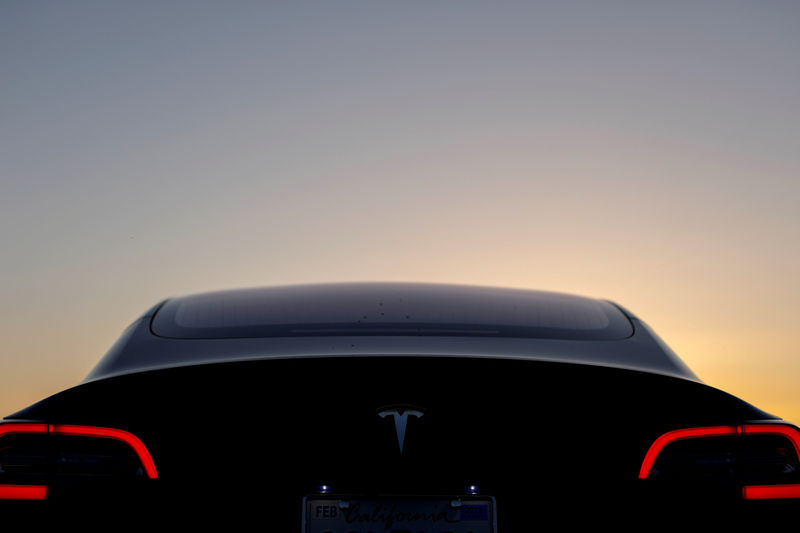Gold prices rebound after heavy losses; U.S.-China tensions resurface
Investing.com -- The electric vehicle landscape continues to evolve rapidly, with established players and newcomers vying for market dominance. According to WarrenAI’s comprehensive analysis using Investing Pro metrics, these five U.S. EV stocks represent the most promising investment opportunities for 2025, though each comes with distinct risk-reward profiles.
Tesla maintains its position as the undisputed EV market leader with a staggering $1.47 trillion market capitalization and impressive 72.3% one-year return. However, at $426.85 per share, it trades significantly above its $291.84 Fair Value, indicating a -31.6% Fair Value Upside. Despite this premium valuation and technical overbought signals (RSI 76.78), Tesla’s robust AI investments, autonomous driving technology, and ecosystem ambitions secure its top ranking. Analysts remain generally positive with a "Buy" consensus, though price targets vary widely from $120 to $548.
More recently, Tesla received several analyst upgrades, with Baird raising its rating to Outperform and Piper Sandler increasing its price target to $500. This comes as data showed competitor BYD surpassed Tesla in European Union sales for a second consecutive month.
2. Rivian Automotive (NASDAQ:RIVN)
Rivian holds the second position with a $19.16 billion market cap and 43.2% one-year return. Trading at $15.88, close to its $14.86 Fair Value, Rivian offers limited upside potential (-6.5%). The company’s strategic partnerships with Amazon and Volkswagen provide stability, but ongoing cash burn presents challenges. Technical indicators show bullish momentum (RSI 73.42), though a recent NHTSA investigation adds uncertainty to its near-term outlook.
Rivian has formally broken ground on its new manufacturing facility in Georgia, where it plans to produce its next generation of vehicles, including the R2 SUV and R3 crossover, with production anticipated to start in 2028.
Lucid presents an interesting investment case at $23.07 per share, trading below its $26.13 Fair Value (+13.1% upside) but showing a -32.8% one-year return. The company’s strong liquidity position and ambitious product pipeline, including the upcoming Gravity SUV, are positive factors. However, persistent negative gross margins and leadership changes create significant risk. Recent technical momentum (RSI 65.40) suggests growing investor interest despite fundamental concerns.
Lucid Group delivered its first robotaxi engineering vehicle to Nuro as part of its partnership with Uber to develop an autonomous ridesharing service. Separately, Cantor Fitzgerald raised its price target on the company to $26 while maintaining a Neutral rating.
VinFast demonstrates impressive revenue growth (86%) but has delivered a -15.3% one-year return. At $3.18 per share, it trades slightly below its $3.30 Fair Value. Despite strong analyst recommendations, VinFast’s negative gross margins and concerning liquidity metrics signal caution. Technical indicators currently flash selling signals, suggesting investors should monitor the company’s financial performance closely before committing.
VinFast Auto reported strong second-quarter results, with revenue of approximately $663 million driven by 35,837 vehicle deliveries. The company also expanded its global presence by launching two electric SUV models in India.
Polestar rounds out the top five, trading at $0.98 per share, essentially at its $1.01 Fair Value. With a -42.3% one-year return and low Pro Score (1.16), Polestar faces significant challenges. Financial health concerns and ongoing cash burn make this a speculative investment, though planned U.S. production and new model launches could improve its trajectory. Analyst consensus remains neutral, with modest price targets suggesting limited near-term upside.
In recent developments, Polestar reported second-quarter revenue of $1.4 billion, which surpassed analyst expectations.
This article was generated with the support of AI and reviewed by an editor. For more information see our T&C.
